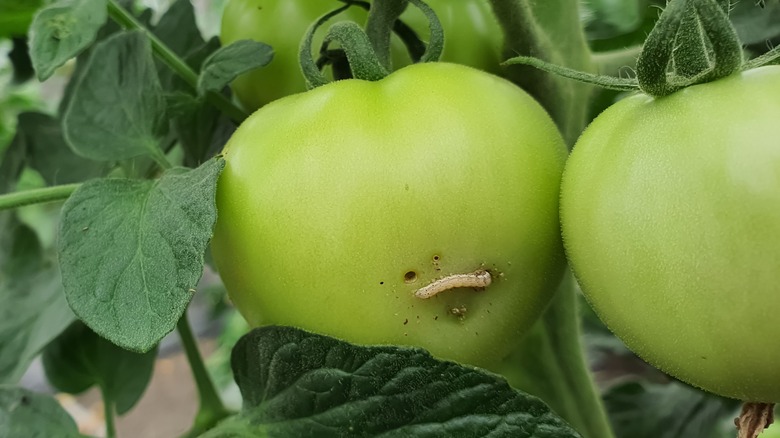The Simply Genius Vinegar Trick That Stops Caterpillars From Munching In Your Garden
Dealing with caterpillar infestations in your garden can be a tough challenge, especially if you're not a seasoned gardener. These little insects can really do some damage by munching on leaves and compromising the health of your plants. It can be disheartening to see the evidence of their destruction. But vinegar is a natural and environmentally friendly solution that can be quite helpful in your efforts to control unwanted critters.
Using harsh chemicals to get rid of caterpillars may not be the best option, as it can have a negative impact on the environment. Vinegar is a safer alternative that is gentle on your garden. Plus, it's a cost-effective solution that many plant parents love because it helps keep their garden healthy without breaking the bank. Adopting this method can help create a healthier garden environment, and it could be the solution to the caterpillars dining on your plants, grass, fruits, and veggies.
Using vinegar for caterpillar control in your garden
To use vinegar effectively in your battle against these leaf-munching pests, you'll need white vinegar, water, and a spray bottle. Mix one part of white vinegar with three parts of water and a few drops of dish soap in your spray bottle. This dilution helps to ensure the solution is potent enough to kill caterpillars without harming your plants. Wait for a sunny day when the caterpillars are actively feeding on your plants. Spray the vinegar solution directly onto the insects, which should kill and repel them.
Reapply the solution every few days or after rainfall, as it may wash away. This consistent approach is critical to breaking the caterpillar lifecycle. Additionally, consider using vinegar strategically around the perimeter of your garden as a preventive measure. This creates a barrier that can discourage caterpillars from entering in the first place. If you're concerned about the strong smell of vinegar in your garden, don't worry. Once the solution evaporates, the odor dissipates.

